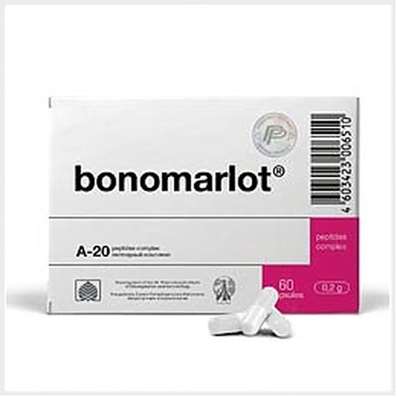Trusting Memory
29 Oct 2016
Psychologist Dr. Doping about implanting memories, transforming truth and cultural differences autobiographical memory formation.
To autobiographical memory to work properly, it is imperative that people believed that it was true. If I wake up in the morning and wonder whether I - I, I work in what I do, that the people I see - these are my relatives, disaster strikes. No less a disaster happens if I doubted some events of his past, which play a fundamental role for me, such as date of birth. A huge number of effects, if the question that I thought was so, but in reality was different. And because it is very important to subjective autobiographical memories were significant, of course, there was a special mechanism in the work of this function is that this confidence, reliability and support.
But we know that confidence - it does not mean the truth. If a person is something sure, this does not mean that it's true. And this statement is particularly applicable to autobiographical memory. If, on the one hand, people trust their memories, because they base their lives on these reminiscences, their relationships, their plans, on the other hand, to date has shown that perhaps, few things are as easy to change, modify and so easy to influence, both on the autobiographical memories. In this sense, autobiographical memory as time may be called gullible. If possible, she will eat and take the content that is suitable for her. Although it's not so bad here, because it has its own mechanisms to counter the effects. I'll try to have time to tell about them.
Now, what factors are known today? Firstly, of course, a person can share pretty bad what happened to him: memories of events that occurred in the external world, and memories of the events that took place in the inner world. In fact, for us it is almost the same thing - to survive the event or submit it, especially if the time has passed since these events, and we want to make an imaginary event was really, to us is not enough. Or we lack it, to feel psychologically prosperous or, conversely, to some negative emotions such as resentment against someone, nurture confidence and hold.
Taking advantage of this, in the laboratory, the researchers showed that it is worth only imagine some event, even almost unimaginable and unreal, and that is enough for a person to believe in something that is with him was in fact, and believed so much that he he will not be able to distinguish between truth and fiction. Another thing is that now there are works that show that there are some small signs, which can be carried out by examination and distinguish: a memory relates to an external event or internal.
For example, in one experiment, people were asked to recall their first day of life. Of course, everyone said that they do not remember their first day of life. Nobody remembers. Moreover, we know that autobiographical memory in infants is not there. She appears in these adult conversations - from different cultures in different ways, but the Europeans have somewhere between three and four years. That is an impossible memory.
But then the subjects in this experiment were asked to imagine how they could see the first day of his life if this baby could remember and tell us how it all happened. They lay on special mattresses, staring at the ceiling, it seems that over them inclined some people that might be, some toys, and so on. They explained that the children all seems more vague. Imagine that you have a blurred image. After half an hour of such training almost 90% of the subjects stated that they remember exactly the first day of his life. And, interestingly, there is always this observation: people are always sure that the other cheated, others inspired, and he is a really remembered, he had such a remarkable memory.
And here the question arises: Is everything that we can imagine, or that we can make the present, or what we can show, for example, the modern means of media, which create almost virtual reality, is it possible to make it so that people take this virtual experience lived for a real and live it in their autobiographical memory? Moreover, it is possible, here it opens space for violence for some violent implantation of relevant memories that will control the behavior, human preferences, for example, even for advertising purposes. In one of the experiments, subjects were offered to recall how they were in the "Disneyland" as a child (no matter what they are not) and ate some amazing ice cream. Then he revealed the secret of what was sort of ice cream. Of course, it turned out the ice cream, which advertised this company. And then it has been shown that people are more willing to choose, buy and, most importantly, it's ice cream seemed to them in this package is much more delicious than the other varieties of ice cream, when in fact they were of the same variety. Just by a projection of memories of childhood preferences distributed to all products that have been associated with this memory.
Phenotropil, Semax, Picamilon, Nootropil are used for improving mental ability.
You do all you can to implant anything one way or another? Is it possible to manipulate the autobiographical memory, using its credulity? The good news is that not all and not always. This credulity autobiographical memory extends to those memories that are at the very person has a motivational request. It turns out that the child becomes as he can remember, so what kind of memory it made his parents about his childhood. Because of this, he concludes that what he is, and accordingly behaves appropriately respond to the world. However, when a person has grown, there is beginning to follow a certain equality, some interaction. And when we are adults, we are reminded that fits our personality that we have now.
If you are a person, for example, kind and sympathetic to their elderly parents, then you will remember my childhood as happy, where your parents gave you gifts, walking with you, doing all sorts of good things. If you are a person angry, resentful, dissatisfied with their lives and the more dissatisfied with their parents, then you will remember very different events: you will remember how they have offended, they you gave is not what you want, they have a -That punished and so on.
Moreover, it is clear that the objective reality that is behind it in the distant past, can be absolutely identical. Our memories, when we are adults, then describe what we are now, to a much greater extent than the events that have been in the past. And there is also the part of the individual, of course, an important approach, and by the practice and practical psychology, because such work with memories, especially in the distant past, a childhood can be a very good resource, in order to adjust the relationship with the world here and now.
There are other techniques that increase the possibility of implant or implant new memories of events that did not exist previously. And I said that imagination, that is, the substitution of the experience of interaction with the outside world experience of interaction with the inner world, works very well. This is the basic mechanism. But this process can be a variety of ways to facilitate and strengthen. These factors are mutually reinforcing.
For example, one of the factors, which clarified to date - is a factor of appeal to authority. Where did this new recollection and how likely it is that it really happened in your past? For example, on the street you stop a passer, which you do not recognize, and something tells you of your past, and most likely, you say that he is a charlatan and nothing you do not happen.
And if, say, you arrive your grandmother or some close relative with whom you have not seen, yet at the same time shows you a photo (by the way, no matter what is depicted in this photo, it is important that it is only in this period of life treated), then, of course, your subjective probability and subjective accuracy of this event will sharply rise. Such experiments were carried out with practical purposes, to show how people can be sensitive to the effects on their memory.
For example, the Roman scholar Julian Mazon just wore glasses and a white robe doctor during the experiment, and, when the test came, she looked at him seriously and said: "Tell me your dream." The man told his dream. No matter what he said. She said: "I am a doctor, I dreams specialist, I interpret them very clearly. And the dream is telling you that you have experienced as a child (leave it on her conscience) drowning and almost drowned. " And after that a huge percentage of people began to believe (the truth, then what was on them - a mystery) that they, for example, as a child survived drowning.
In another experiment, people were placed in a situation where to see or participate in possession by the devil - it's a perfectly normal thing. It mounted a talk show that is broadcast as if by accident on the screen, where people from the federal channel logo discussed how they survived the experience possessed by the devil, as the experience possessed by the devil has affected their lives, and so on. Lay specially made artificially printed newspaper (of course, in one instance), where the country's Prime Minister admitted that he was a child was possessed by the devil, then he was healed. All Wednesday hinted that to be possessed by the devil - this is normal, even prestigious, it leads to personal growth in the future. People are not saying of course that they are implanted memory. They just said, "Wait here sit, socialize, spend time pleasantly."
But after a few weeks, a significant percentage of these subjects have already recognized, and then some of them recalled in detail what they were or were possessed by the devil, or have seen the possessed by the devil, that is entered into contact with them. That is what happened here? Some kind of experience. We have memories, but we do not know what to call them. We never thought about it. And then we called and explained what it was. And we remember not what was actually, but how it is for us to describe the authoritative sources that tell us that the contact was actually. Once we have explained, we have and remember. By the way, those children with whom I began, too, adults, explain that it was in reality. We are looking for all my life, too, such explanations to a greater or lesser extent. And here there is a very serious transformation memories.

 Cart
Cart





